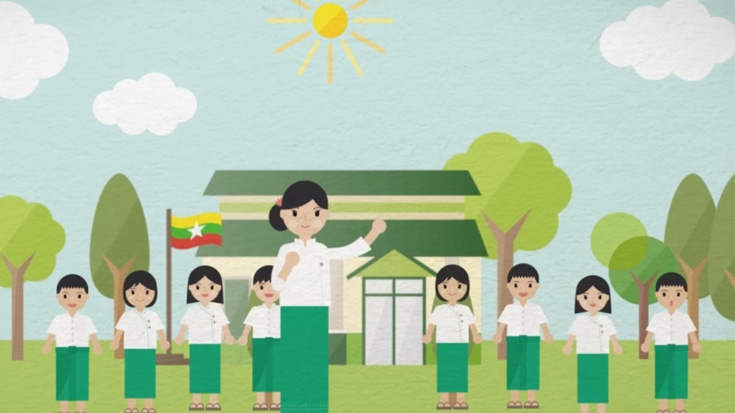A small boy – one of the lucky 17 – knows the value of studying hard and getting a good education. With the stipend, his mother can pay for the stationery, books and the uniform he needs to stay in school. From a farming family in the village of Yodhaya, he knows that an education can make the difference between working “in the sun” as a casual labourer and a better-paying “job in the shade”.
Rural families across Myanmar look to education to improve their prospects for the future – to change their children’s lives for the better. Families benefit and Myanmar as a nation benefits as well.
Australia and the World Bank are working closely with the government to expand funding for education in Myanmar. The World Bank is providing US$80 million in credits and Australia AUS$20 million (US$17.7 million) in grants to bolster existing Ministry of Education programs to help all children attend classes.
With the help of this funding, the government provides increased grants for each of Myanmar’s 43,000 schools. Approximately 100,000 poor students in grades 5-11 will receive stipends – a big step forward for learning across the country.
Primary and middle school enrolment is free in Myanmar but parents face other significant costs, such as uniforms and transport to and from school. Stipends for the poorest students, decided by school committees and local communities, will help ensure that parents can afford to send all of their children to school. Even a modest stipend can help keep a farmer’s child learning in school rather than working in fields at a young age.
Myanmar’s education funding also includes cash grants to cover school operating costs. This helps schools purchase locally what they need to make learning come alive in the classroom.
Schools received their first operating grants at the end of June and stipend payments for qualifying students are now being made. In Myanmar most schools are without electricity and many also lack running water. Every contribution and incentive – to parents, children and teachers – can help.

